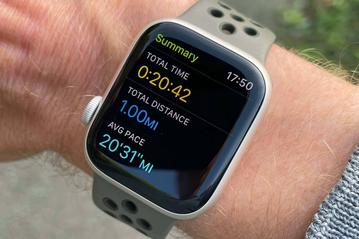Exploring the Time Required to Walk 60 Miles: Factors, Estimates, and Tips
Walking is not only a physical activity but also an experience that allows us to connect with our surroundings at a leisurely pace. If you're considering embarking on a 60-mile journey, you might be curious about how long it takes to cover that distance on foot. The time it takes to walk 60 miles depends on various factors, including your walking speed, terrain, fitness level, and breaks. In this article, we will delve into these factors and provide you with estimates and tips for completing a 60-mile walk.
1. Factors Affecting Walking Speed

Factors Affecting Walking Speed
Walking Speed: Your walking speed is a significant determinant of the time it takes to complete a 60-mile walk. On average, a person's walking speed ranges from 3 to 4 miles per hour (mph). However, experienced walkers might maintain a faster pace.
Terrain: The type of terrain you encounter on your journey plays a crucial role. Walking on flat, paved roads is generally faster compared to hilly or rugged trails. Terrain affects your stride length and energy expenditure.
Fitness Level: Your physical fitness influences how long you can sustain a certain walking pace. Regular physical activity enhances cardiovascular endurance and muscle strength, allowing you to walk at a consistent speed for a longer duration.
2. Estimates for Walking 60 Miles

Estimates for Walking 60 Miles
Average Walking Speed: If we consider an average walking speed of 3.5 mph, you could theoretically complete 60 miles in approximately 17.14 hours.
Terrain Variation: If your route includes a mix of terrains, such as roads, trails, and some hills, it might take closer to 18-20 hours due to the variability in walking speed.
Ultra-Walking Pace: Competitive ultra-walkers can cover distances at remarkable speeds, often around 4.5 mph or more. At this pace, you might finish 60 miles in about 13.33 hours.
3. Tips for Completing a 60-Mile Walk
Training: Prioritize training to build your stamina and endurance. Gradually increase your walking distance during practice sessions to accustom your body to long walks.
Footwear: Invest in comfortable and supportive footwear. Ill-fitting shoes can lead to blisters and discomfort, affecting your walking speed and performance.
Hydration and Nutrition: Stay hydrated and consume energy-rich snacks to replenish lost calories. Dehydration and inadequate nutrition can slow you down.
Rest and Breaks: Plan short breaks during your walk to rest and stretch your muscles. However, don't take excessively long breaks, as they can impede your momentum.
Mindset and Motivation: Maintaining a positive mindset is essential during long walks. Set achievable milestones and reward yourself upon reaching them.
Support and Safety: If possible, have a support vehicle or a friend who can assist you with supplies. Ensure your safety by wearing reflective clothing if walking during low-light hours.
4. Real-Life Experiences
|
Walker |
Walking Speed |
Time to Complete 60 Miles |
|
Jane (Average Walker) |
3.5 mph |
Approx. 17.14 hours |
|
Mark (Varied Terrain) |
3 mph (flat) to 2.5 mph (hilly) |
Approx. 20-24 hours |
|
Sarah (Ultra-Walker) |
4.5 mph |
Approx. 13.33 hours |
The time it takes to walk 60 miles varies based on several factors. Your walking speed, terrain, fitness level, and breaks all contribute to the overall duration of the journey. While estimates provide a general idea, real-life experiences demonstrate the variability that can occur. By considering these factors, following helpful tips, and preparing both physically and mentally, you can embark on a successful 60-mile walking adventure. Remember that the journey itself is just as important as reaching the destination.